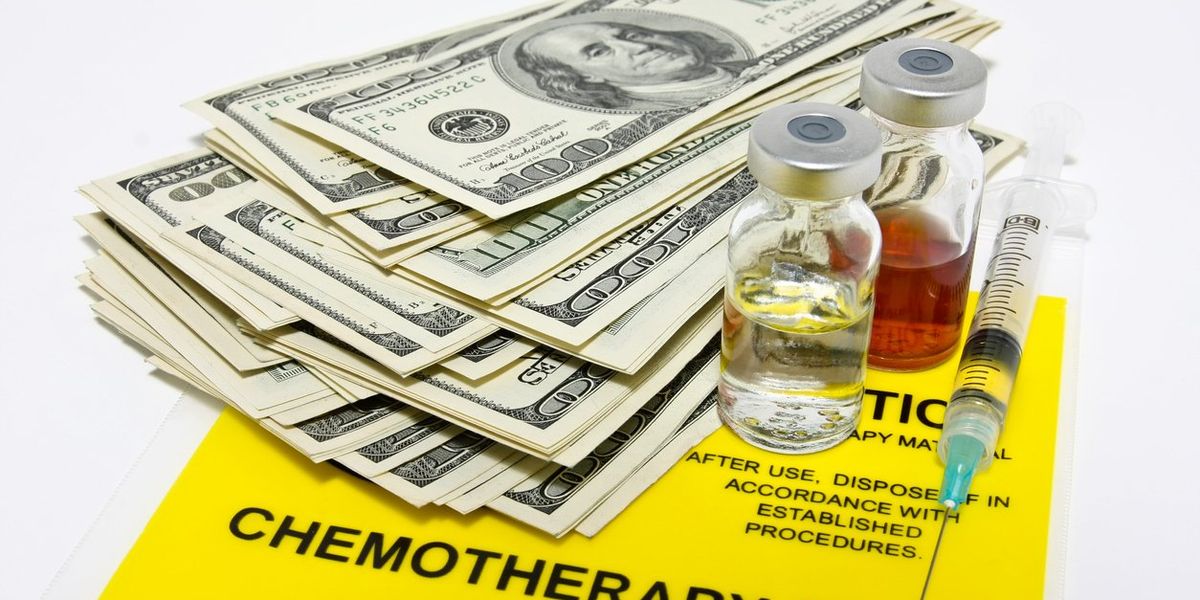
Finances are not always the first thing people think about when they are diagnosed with cancer. The main questions may be: What is the prognosis? What are the treatment options? And who are the best specialists?
But increasingly, there is also the cost of cancer to deal with along with the physical and emotional aspects of cancer. Those costs can really add up and often take people by surprise.
Different types of cancer-related costs
Unfortunately, the costs of cancer come in many forms.
If you have health insurance, you can expect it to cover all the costs of cancer care, and it should cover many of them. Direct medical costs include tests, medications, procedures, surgeries, and some medical supplies. Insurance will likely cover these costs if they are deemed “medically necessary.” In other words, if your treatment fits the standard guidelines for your particular cancer and your health care providers (HCPs) believe you need it, your insurance is more likely to pay for it.
However, even if your insurance covers direct medical costs, you may need to get approval in advance (called “prior authorization”). Getting that approval can be its own headache. If your treatment plan is less common or you want to see a health professional who is not in your insurance network, you may not get approval.
Beyond the direct medical costs of your cancer treatment, you may face many other types of expenses. For example, special foods or nutritional supplements may be important, but insurance typically does not cover them. Or, while medical care may be covered, home health care may not be.
If you have to travel for care, across town or far away, you need to take those costs into account as well. Whether you have to pay for parking at a downtown hospital or travel for specialized care away from home, travel costs can be a challenge.
If you have cancer, you may need extra help caring for your children, parents, or pets. You may need more help around the house or running errands that you can’t do on your own for a while. Caregiver costs can be considerable and, for many, may be out of reach.
The costs of cancer can be even more difficult to manage thanks to “opportunity costs,” lost opportunities to make money. If you are undergoing treatment, you may not be able to work or may have to reduce your hours. Loss of wages or employment-based health benefits can turn financial strain into a crisis. in a Cancer Cost Study 2022 made by Healthy Women and CancerCarefulnearly half of people in active treatment experienced some financial setback and 6% lost their job completely.
How to Cope with the Stress of Cancer-Related Financial Challenges
The first step in managing the real stress of cancer-related costs is to recognize that you are not alone. HealthyWomen’s Cost of Cancer report showed that paying cancer costs was stressful for 6 in 10 people surveyed. Nearly 1 in 2 cancer patients reported feeling stressed, worried, and overwhelmed due to the direct and indirect costs of cancer care.
It is also important to ask for help or allow people to help when they offer it. The people in your life most likely want to help, but they may need you to tell them what would be most helpful. Perhaps a neighbor can run errands for you or a close friend can help you with household chores. These gestures can save you the cost of hiring someone and give you the peace of mind of knowing you are not alone.
The emotional stress of a cancer diagnosis is real. The financial aspects of cancer only compound those challenges. If you’re feeling anxious, depressed, or overwhelmed in general, seeking therapy or other mental health care may also be helpful.
Relieve financial burdens related to cancer
Without health insurance, the direct costs of cancer can be overwhelming. But if you don’t have insurance, there are ways to get coverage.
If you don’t have health insurance from work, is there someone in your household who can add it to their coverage? If not, visit the Federal Marketplace (Healthcare.gov) or your state’s Marketplace. If you recently lost your benefits, you may be able to enroll even if it is not during open enrollment. If you have little or no income, you may qualify for generous subsidies.
Depending on your income and your state’s rules, you may qualify for Medicaid, the state’s health insurance for people with very low incomes. Similarly, depending on your age and condition, you may be able to enroll in Medicare. These programs offer good coverage and many consumer protections, often for free or at very low costs.
With or without insurance, if you are having trouble paying for medical care, you may qualify for financial assistance from your hospital or clinic. Hospital financial counselors can often help you navigate the hospital’s financial aid process, which may include a formal application. If your request is denied, you may be able to appeal. Medical centers also often set up a payment plan that allows you to pay small amounts over time, sometimes interest-free. Be honest about what you can comfortably afford.
If you can’t get financial help from the hospital or medical center, the financial counselor may still be able to help you. They may be able to help you get support from local community or faith-based organizations, or from drug manufacturer copay relief programs. Some nonprofit organizations will also help you advocate or negotiate bills on your behalf.
Finally, many people turn to crowdfunding campaigns to raise the money they need. Whether you launch a formal campaign or informally seek financial help, there is no denying the power of your community to help you face the emotional and financial challenges of cancer.
From the articles on your site
Related articles on the Web





